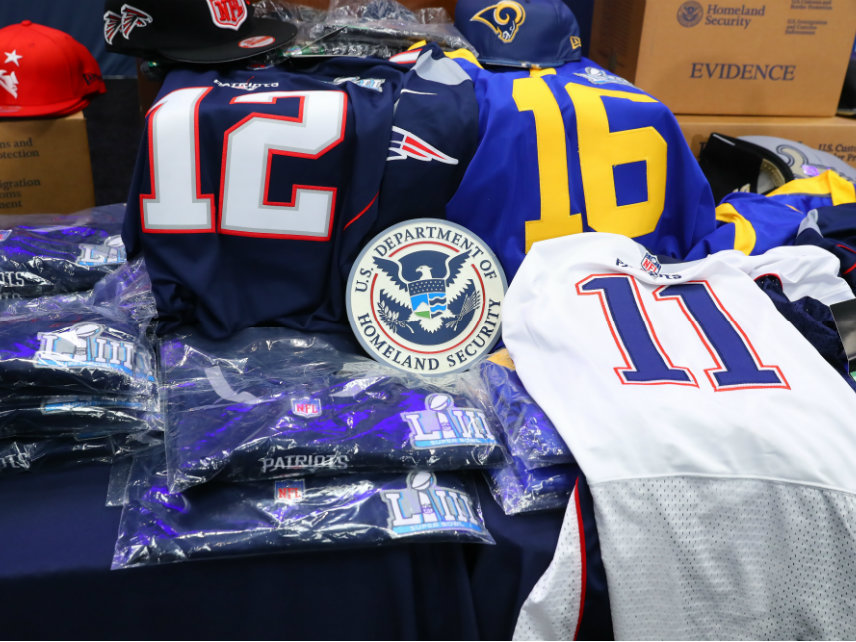The NFL Should Pay for Super Bowl Security, Not Taxpayers
If Trump wants to negotiate good deals for taxpayers, he should start putting some pressure on his old nemesis: the National Football League.

Super Bowl Sunday is sometimes called an "unofficial national holiday," but the federal government plays a larger—and more expensive—role than it probably should, for what is still very much a private event.
As Juliette Kayyem, chair of the Homeland Security Project at Harvard University's Kennedy School of Government, points out in The Washington Post, the Super Bowl is designated as a SEAR (Special Events Assessment Rating) Level I event—that's Department of Homeland Security speak for "a really juicy target for potential terrorists"—and gets the same sort of security treatment as, for example, the State of the Union address (another SEAR Level 1 event).
Practically, that means almost every federal law enforcement agency is part of Super Bowl security, and every police officer in Atlanta will be on-duty Sunday, according to CNN. Together, they will handle security checkpoints around the Mercedes-Benz Stadium in downtown Atlanta, as well as emergency response and cybersecurity operations. There's even a no-fly zone around the stadium that starts at 3 p.m. on Sunday and extends until midnight, with Customs and Border Patrol (CBP) aircraft patrolling the skies during that time. In all, more than 1,500 personnel are involved in securing the Super Bowl. And then there are the more questionable uses of federal resources, like sex trafficking stings that mostly nab consenting adults and the weird CBP-led operation that seized $24 million in counterfeit Super Bowl merchandise.
All of that is paid for by taxpayers—either at the federal or local level.
When the NFL's contract with Minneapolis to host last year's Super Bowl was made public, we got a glimpse at how little the NFL actually contributes to paying for its own championship game. According to the Minneapolis Star-Tribune, that contract contained almost 200 instances of the phrase "at no cost to the NFL," including a clause making clear that security issues are left to the host city to fund.
"It makes sense that federal law enforcement, with all its capabilities, has a central role in efforts to make the Super Bowl as safe an experience as possible for fans and its host community," writes Kayyem in the Post. But, she argues, it's time for the NFL to "start shouldering more of the security the costs for its own premier event."
Indeed it should. That's even more true when the federal government is running trillion-dollar deficits, and when the threat of more shutdowns continue to loom over federal workers. If the Super Bowl had taken place two weeks ago, some of those federal law enforcement employees securing the game would have been working without pay. Perhaps that would have put more attention on how ridiculous it is that the NFL does not cover at least some of the cost of securing its own event.
President Donald Trump, who often expresses an interest in negotiating better deals for American taxpayers and has openly stoked criticism of the NFL, should take the opportunity to demand that the league defray those costs in future years. There is already a playbook to follow. In 2015, the NFL willingly gave up its tax-exempt status after members of Congress and the media draw attention to the nonsensical loophole that saved the league about $10 million annually.
Because the NFL is concerned about public perception, this is a perfect opportunity for Trump to use his bully pulpit to benefit taxpayers, whack his old rivals in the NFL, and stand up for American law enforcement personnel. It seems like a win-win for the president, but don't hold your breath for anything to change.
